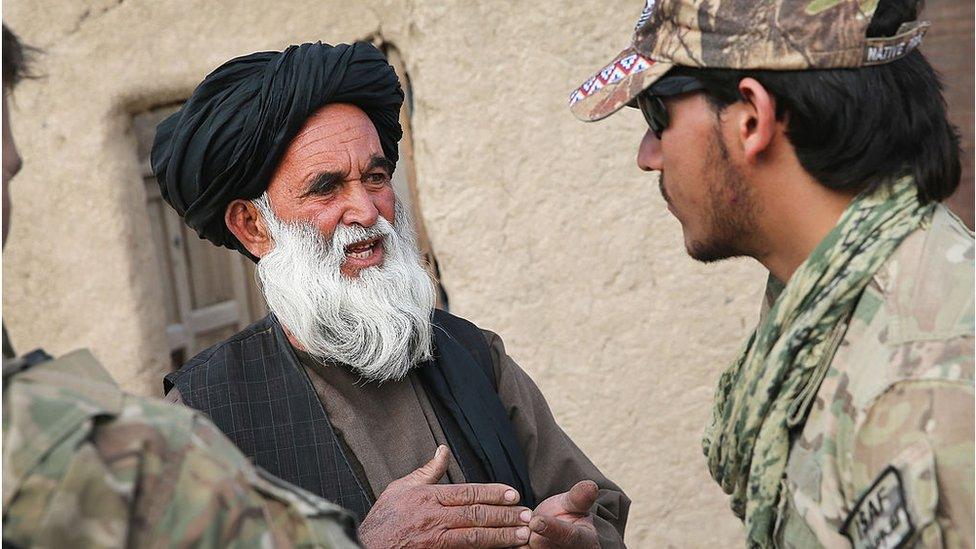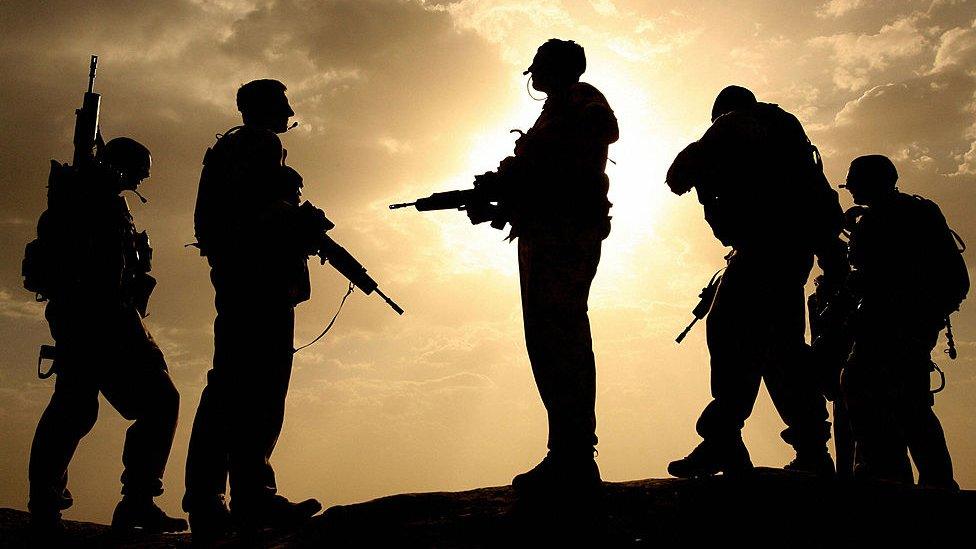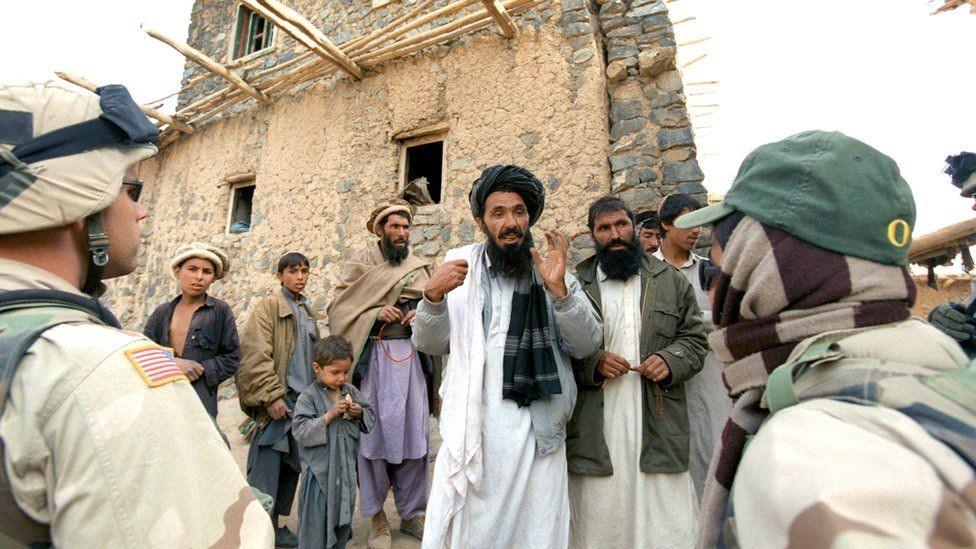First group of evacuated Afghan interpreters arrives in US
- Published

An Afghan interpreter with the US Army seen speaking with a villager
About 200 Afghan interpreters and their families have arrived in the US - the first of a group of 2,500 Afghans being evacuated as the Taliban advances.
The interpreters are being resettled under a visa programme for those who worked with the US during the recently ended 20-year war with the Taliban.
They arrived in the early hours of Friday morning and were taken to Fort Lee military base in Virginia.
They are expected to stay there for around a week while they are processed.
In a statement, US President Joe Biden called the arrivals "a milestone" and "the first of many" as US authorities work to relocate eligible Afghans out of harm's way.
Afghans eligible for Special Immigrant Visas (SIV) will be transported either to the US, American facilities abroad or to third countries while they finish their applications. The most recent arrivals have already completed an extensive vetting process.
On Thursday, the US Senate approved more than $1bn (£719m) to pay for the evacuations, including housing and transportation.
The bill would also loosen applicant requirements and allow for 8,000 more visas in addition to the ones already allocated for.
The Taliban have been advancing Afghanistan following a decision by Mr Biden to withdraw the remaining American troops from the country.
With those advances have come danger to those who worked alongside US troops during the two-decade conflict.
Since 2008, approximately 70,000 Afghans have been resettled in the US on an SIV .
Last week, a senior state department official said that the total number of visa applicants now stands just over 20,000. About half have yet to complete the first steps of the process.
Those yet to go through the process face potential threats in attempting to secure a visa. Mike Jason, a former US Army battalion commander who was deployed to Afghanistan, told the BBC that travelling across Taliban-controlled areas with the documentation needed for SIVs puts interpreters in "mortal danger".
"That's basically an entire confession that you're an interpreter working for the Americans. We're asking them to travel with the evidence," he said.
Not-for-profit group No One Left Behind estimates that at least 300 Afghans or their family members have been killed for working with the US.
The Taliban were removed from power by the US-led invasion in 2001, following the attacks on the World Trade Centre in New York.
Fighting between the insurgent Taliban and Afghan government forces has increased over the past two months as international troops pull out of the country.
- Published28 July 2021

- Published14 July 2021

- Published16 August 2021
